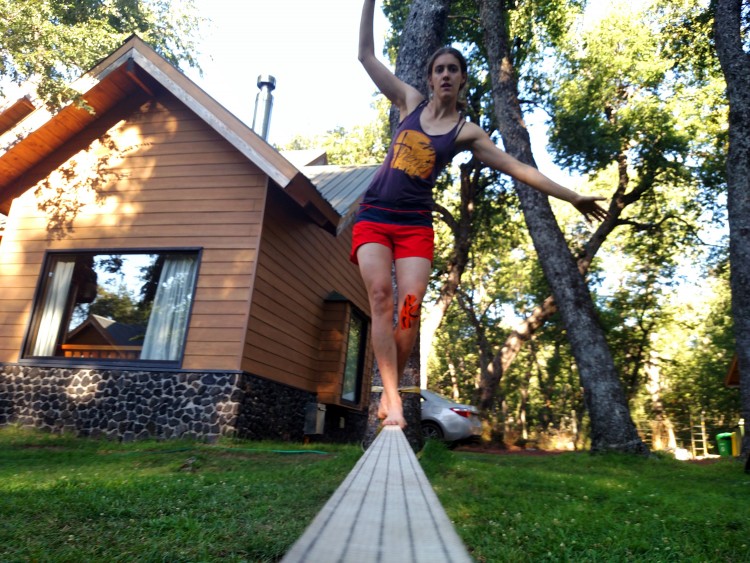This is Why Having a Growth Mindset Matters
22 Mar 2016

There’s a lot of talk about growth mindsets these days, mostly spurred by Carol Dweck’s amazing (and amazingly popular) TED Talk on grit and growth mindset in the classroom. But what I’ve realized is that nearly everyone prefers to talk about how to inspire other people to have a growth mindset, specifically small, impressionable children who have not yet been ruined by years of misguided school systems telling them they suck at math. Naturally, this is easier, and far less messy, than trying to dismantle a fixed mindset in an adult. Because not only do fixed mindsets cause your world outlook to be fixed, they also adhere themselves to your brain, your identity, your very being, in a way that is decidedly, well, fixed.
I know because I’ve been trying not to have one, and it’s hard. It’s specifically hard because there’s not much info out there on how to do this. Sure, you can google “tips for developing a growth mindset” and uncover lots of flowery (albeit probably true) garbage about opening yourself up to challenge and re-framing failure and whatnot, but this isn’t very helpful if you don’t know what a growth mindset is, or you can’t recognize the problems in your life that stem from having a fixed mindset.
I had my first revelation on the topic a year and a half ago when I wrote a post called “Why You Should Do the Things You’re Bad At” although I didn’t realize at the time that I was talking about growth mindset. Mainly I was talking about how I had just then (at the age of 23, sigh) realized that a person will be good at whatever they invest their time in (and if you’re bad at something, it’s probably because you haven’t invested the time in it). A few weeks ago, I wrote a follow up to that piece about getting better at being bad at things, and as I was writing it, I came to the conclusion that over the course of the intervening 18 months, my world view had evolved dramatically, largely thanks to that idea of “being good at what you spend your time on.” While having a growth mindset is still a work in progress for me (and probably always will be because, ya know, growth), in less than two years I have changed my outlook, my perception of my capabilities, and the way I deal with setbacks and failure. Some major progress happened in that time, and I now realize that it can largely be attributed to working on a growth mindset.
I plan on writing a post with some real world tips on developing a growth mindset, specifically in a mountain biking context, but first I think we need to clear up what a growth mindset is and why exactly working on one is worth it.
Here’s the difference between growth and fixed mindsets, according to Carol Dweck:
“In a fixed mindset, people believe their basic qualities, like their intelligence or talent, are simply fixed traits… They believe that talent alone creates success–without effort. In a growth mindset, people believe that their most basic abilities can be developed through dedication and hard work.”
And here’s what having a growth mindset looks like, in real life (according to me) —
Having a growth mindset is not just “believing you can succeed,” it’s “believing you can change.” This is a crucial distinction for me. I’ve always been capable of believing I could succeed (at least when I was having a good day), so I always thought I had this growth mindset thing under wraps. But dozing off in math class visualizing winning a state championship track meet is not the same as, honest to god, believing you are capable of the mental, emotional and physical changes necessary to meet your goals. Visualization is great, but it does not a growth mindset make. Having a growth mindset is finishing a shitty race and thinking “okay, that was shitty, but what did I learn?” And then once you think through what you can learn from the experience, you forgive yourself for having a shitty race and you move the f*ck on. And if you do have a meltdown anyway, with a growth mindset, you can think, okay, next time I’m going to react differently, and then you forgive yourself for having a meltdown and you move the f*ck on. (Seeing a pattern here?) I’m not saying that I’m good at this, but I’ve had plenty of practice over the past few years, and it’s empowering to think of all those shitty races as being building blocks to something, as opposed to just a collection of examples of times when I’ve dramatically underperformed. At the very least, I’ve learned that being happy and fulfilled after a race is a completely separate skill from actually doing well in the race — and it’s a skill that I can work on, and perfect, no matter whether I’m on the podium or DFL. With a growth mindset, failure doesn’t define you and therefore neither does success. While it’s good to believe you can succeed and all, recently I’ve realized that that pales in comparison to the importance of simply believing that you can do better, and knowing that you are willing to work to make it happen.
Having a growth mindset is understanding that it’s okay (good, even!) when something is hard, even if everyone else is making it look easy. Because there are always people who make the hardest things look easy — and 90% of the time, these people were in the same position as you 2,3,5 (or more) years ago — and they’re where they are now because they put in the effort, kept going and progressed. And chances are they occasionally sat down on the side of the trail and wept, or flung their bike into a bushes with a few choice words, because nobody’s perfect. With a fixed mindset, struggle is a sign of failure, or an indicator of a lack of talent. With a growth mindset, struggle is a sign that you’re doing something that’s hard or new to you and that there’s room for improvement. Yes, I admit it sounds semi-ridiculous to get up after face-planting into a pile of rocks and say “well, at least there’s room for improvement,” but you know what, it’s infinitely better than thinking that that face plant means you suck at riding a bike.
Having a growth mindset is understanding and dismantling the limits you place on yourself. If you’re like me, you have a list of things in your head that you’re bad at — for me, it’s math, chess, sports involving projectiles, waiting long enough before flipping pancakes, torrents, organizing my email inbox and touching my toes. Mind you, I’ve been working on my flexibility for a few years now and I can touch my toes just fine, but it remains on the list because that’s just how insidious fixed mindsets are. I was a disgustingly inflexible teenager, therefore, I continue to think of myself as inflexible. Fixed mindsets aren’t based in reality — they’re based in the dark recesses of your psyche and they prey on your insecurities. While realizing this doesn’t entirely fix the problem, it certainly helps. With a growth mindset you can take that list of things you’re bad at, and rename it “things I don’t do.” Frankly, I give zero shits about being good at chess, so it’s likely to remain on the list for awhile, but I’m okay with that. You can get rid of the idea of certain skills being “impossible” for you, and instead think of them as “things I can’t do yet.”
Stay tuned for a guide to developing a mountain biking growth mindset, sometime in the next few weeks!






I hate it when I need to go back and re-read several times. :)
Brain plasticity, the power of habit and the power of training (and training, and training and training) are amazing tools.
And now .. back to re-read what you wrote, again. :)
Hi Syd,
I am a School Counselor and my schools are adopting a growth mindset as building goal! I used this piece with a few language edits for my students. I agree that this is a life-long process, but with intentional practice it’s so possible, yet!
Awesome glad it was helpful and sorry my language is not always school appropriate, oops haha.
I had never heard of a Growth Mindset before but having read your blog, it kind of makes sense. I am now going to tell myself that I am not shockingly bad at off camber wet root sections, I have just not practised them enough. Will be seeking out these horror sections in future, so I can remove them from my own growing list of things I don’t do….yet. Thanks!
Glad I could help! And I’m not a huge fan of off camber roots, either…
So you bad at chess, hmmm…. you know what, when I play chess on computer, I set it on most difficult level, and I never win, I also bad too on chess, then I start thingking, fuck this chess rule, and I start imagine, if I keep “undo” my bad move on chess, the mistake will never happen, so I have conclusion, if mistake happen, undo it, in the end it depends on myself, I want to play, the opportunity that I believe I can get, if I keep play, even with undo, does I can win?
I still never beat those computer chess on windows 7 on level 10?
But I still on my way with that “undo” and play again!
Pingback: Five Steps for Learning How to Learn | Syd Schulz